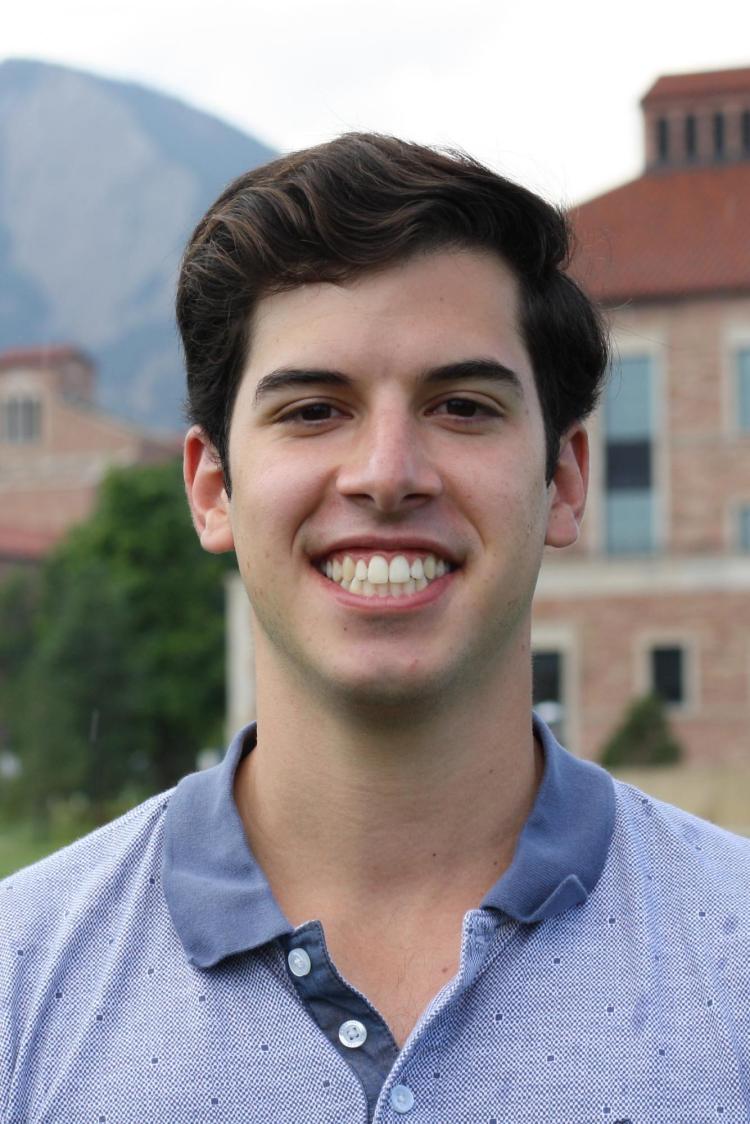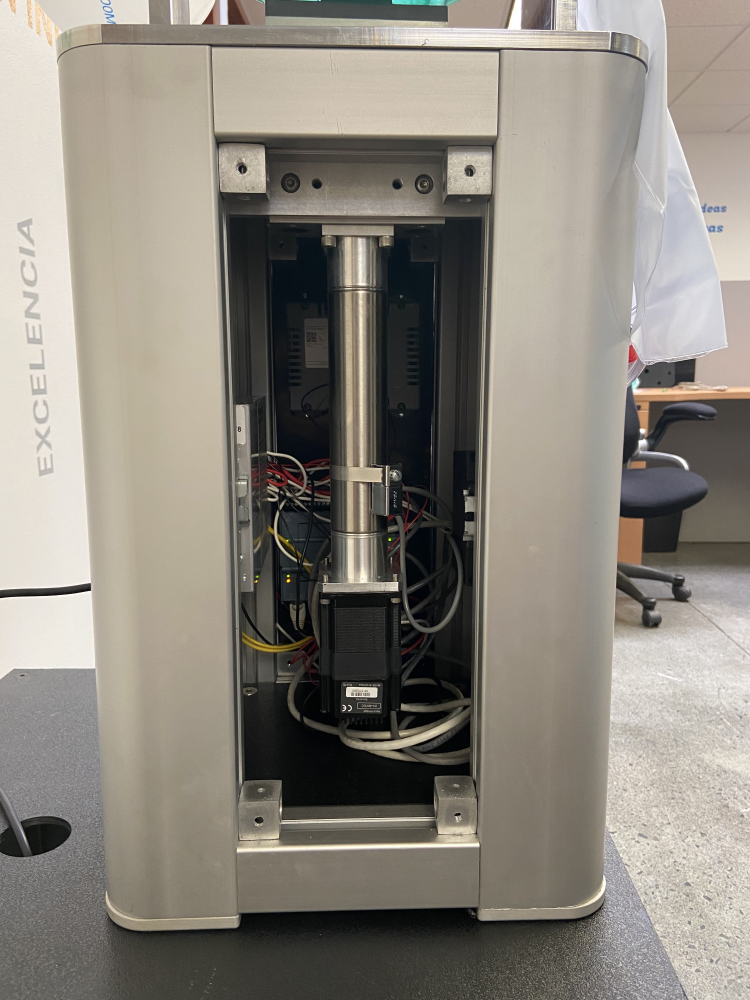Self-guided design project turns into an opportunity to save lives
CU Boulder engineering student Adrian Gutierrez designed an automated bag valve mask with the potential to help those affected by coronavirus in Mexico

Adrian Gutierrez, a rising senior pursuing CU Boulder's Engineering Plus program with an emphasis in mechanical engineering and a concentration in engineering management.
Rising Engineering Plus senior Adrian Gutierrez has successfully developed an automated bag valve mask, a device he hopes will help those with coronavirus in Mexico, his home for 18 years.
A bag valve mask, sometimes referred to as a self-inflating bag ventilator, is a handheld device that assists patients struggling to breathe. A BVM is typically used for short periods of time – like during transportation in an ambulance – because it requires manual compression for air to be pumped into a patient’s lungs. An automated device works on its own and can be programmed to provide consistent pressure and volume of air for any patient.
An automated BVM is not meant to replace a ventilator, but it is helpful for someone with coronavirus whose symptoms are not yet critical or who can’t access immediate hospital care, Gutierrez said.
“The goal is not to replace the ventilator,” said Gutierrez. “Our goal is to figure out a way to make a BVM faster and easier to work with.”
When CU Boulder transitioned to remote learning during spring 2020, a hands-on mechanical engineering course in component design was one of many classes affected by the inability to gather and exchange material in person.
While student teams are ordinarily tasked in this class with developing vehicles powered by drills, coronavirus called for a new approach, including the option for students to complete a self-guided project of their choice.
"The campus shutdown meant the elimination of the hands-on project for component design, but Adrian found a way to complete a meaningful hands-on project that applied the key concepts from the course," said Adrian's instructor, Teaching Professor Derek Reamon.

Above: View of the linear actuator that compresses the automated bag valve mask to simulate breathing.
Top: Automated bag valve mask prototype designed by Adrian Gutierrez and a team of engineers at Kopar, an industrial automation company.
Gutierrez began his work on the automated BVM upon returning to Mexico to live with his family during the peak of the pandemic in the U.S. In Mexico, the pandemic was still on the rise with forecasts pointing to a surge in coronavirus cases in early June.
“We’re seeing a shortage of ventilators and even after the peak, there will still be a need,” said Gutierrez. “We can help the people who really need the ventilators get them by providing the automated BVM to those who are not in critical need.”
Knowing this, Gutierrez worked diligently in partnership with a team of six professional engineers at Kopar, a Mexican industrial automation company, to execute as quickly as possible. The team includes head engineer Antonio Cardoza, application engineer Edgar Gonzalez, project facilitator Jimena Gutierrez, application engineer Ivan Hernandez, Siemens specialist Edgardo Martin, and CAD engineer Yamileth Reyes. In just two weeks, Gutierrez’s design and working prototype were complete.
“What we did was mount it with a linear actuator going up and down,” Gutierrez said.
This allowed for a constant flow of air and adjustment parameters like number of breaths per minute, volume of air, and a pause between inhale and exhale.
“At the time, I was also taking a course through CU Boulder in fluid dynamics, so as we were figuring out settings that would allow for a certain number of breaths per minute, I was using theoretical flow analysis concepts to troubleshoot,” said Gutierrez.
Gutierrez said another important feature is the screen interface, designed for a medical professional to learn in just 15 minutes. There are three presets: one for infants, one for children, and one for adults, allowing for quick care even when little is known about the patient.
“You can turn it on and have someone surviving,” said Gutierrez. “When a medical professional knows more, they can customize the settings further.”
Flow, pressure and temperature sensors make this possible.
Gutierrez said his passion for serving his community began in middle school. When he realized he had access to the parts for an automated BVM, he was again determined to help.
“I said, we need to do this if we can. Why don’t we give it a shot? Hopefully, we do get it out there, but if not, we tried,” he said. "The automated BVM we’ve developed is also not for profit. We just want to help. If it’s replicated anywhere else, that would be nice."
He said some people will get sick and not have the money to have a ventilator, so a low-cost option is important.
In Mexico, Gutierrez and his team continue to work on the device, troubleshooting and fine-tuning to ensure it will work reliably and keep people safe. At this point, it is ready to be replicated if needed, including all software. Gutierrez said he hopes the device will one day make it to hospitals where it has the potential to save lives.
[video:https://youtu.be/QrHB6Rq7riY]Demonstration of the automated bag valve mask as number of breaths per minute, volume of air and a pause between inhale and exhale are adjusted.

